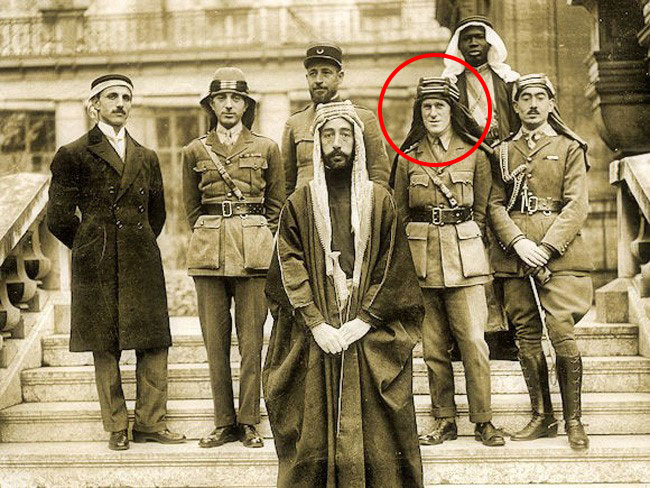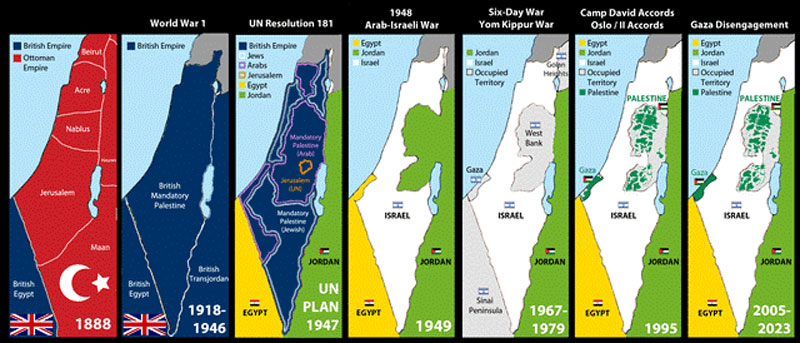Let’s Get Our Dates Correct
I have taught a wide range of history classes over the past quarter century, including art history. We must recognize that history isn’t just about what happened a decade ago. An example is Vincent van Gogh’s Starry Night. He was a 19th-century Post-Impressionist. There were Impressionist painters prior to van Gogh that influenced him. If one goes back decades or centuries, one will see many artistic movements. However, you can go back 35,000 millennia ago to caves, like Altamira, and see thousands of cave paintings.
Any type of history class will provide a deeper understanding of the present. George Santayana wrote, “Those who cannot remember the past are condemned to repeat it.” Unless we learn from past mistakes, we will merely repeat them. Santayana went a step further than learning from the past. “The wisest mind has something yet to learn.”
Therefore, allow a brief lesson about the Middle East, in particular Israel. Our government has recognized the State of Israel for decades. In 1947, the UN created the Partition Plan, which divided the British Mandate of Palestine into the Palestinian Land, the Israel Land, and the Gaza Strip.

However, the State of Israel began, along with the Palestinian-Israeli conflict, which has continued to the present day. Where did the idea of a State of Israel begin? The British and French fought against the Ottoman Turks, who were allies of the Germans during WWI.
Enter Col. T. E. Lawrence. The world knows him as Lawrence of Arabia. He and the Arabs toppled the Ottoman Turks. Interestingly, Lawrence knew his place in the Arab world. “Do not try to do too much with your own hands. Better the Arabs do it tolerably than that you do it perfectly. It is their war, and you are there to help them, not to win it for them.”
The British led the Arabs to believe that if the British won the war, the Arabs would have their own country. Neither the Sykes-Picot agreement, the Paris Peace Conference, nor the Treaty of Versailles included Arabs at the table to decide the creation of an Arab nation.

Emir Feisal and his advisors at the Peace Conference
Lawrence resigned his commission as an officer in the British army after the British didn’t allow the Arabs a place at the table. Nonetheless, Winston Churchill said at the funeral of Lawrence, “I deem him one of the greatest beings alive in our time. I do not see his like elsewhere. I fear whatever our need we shall never see his like again...‘His name will live in history.’ That is true. It will live in English letters; it will live in the annals of war... and in the legends of Arabia.”
A year before the end of WWI, Lord Lionel Walter Rothschild, a British banker, wrote to Lord Balfour, the British Foreign Secretary. Rothschild was a Zionist who wanted a Jewish home. This is a photo of a very long single sentence from Balfour to Rothschild.

Balfour never mentioned a country. All that he wrote was that the British government would be sympathetic with the Zionists' desire for a place “in Palestine of a national home for the Jewish people.” The remainder of the sentence states, “ it being clearly understood that nothing shall be done which may prejudice the civil and religious rights of existing non-Jewish communities in Palestine, or the rights and political status enjoyed by Jews in any other country.”

The history leading up to the State of Israel to the present day.
What would Balfour or Lawrence think today? One would think that people who have suffered for centuries, and especially due to Nazi Germany, wouldn’t replicate how their grandparents and great-grandparents suffered in WWII.
This video parallels the Nazi partitioning of Warsaw into a ghetto.

This is an interesting discussion between Peter Beinart and Jon Stewart, who are both Jewish. Listen to their discussion.
This video is by Sky News Investigation.
This is an excellent video by NBC addressing the famine in Gaza.
This is a documentary of T. E. Lawrence.











